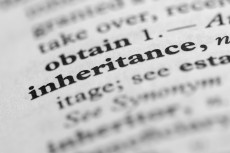Retirement today looks vastly different from what it did just two decades ago. The retirement funding landscape has become considerably more complex, and longer life expectancy has made planning for an extended retirement period more challenging.
In many cases, this modern retirement represents a significant departure from the traditional model, requiring a more flexible and dynamic approach to ensure financial security and well-being during later years.
Global families
More and more South African families find themselves widespread around the globe as a result of a number of push and pull factors. While some South African families settle abroad to escape rampant crime and corruption, others seek to pursue career opportunities that are not available locally.
Whatever the reason for emigration, statistics show that since 2000, 413 000 South Africans have emigrated to another country – and while around 28 000 of those have made their way back, there are still a vast number of South Africans living in countries such as the United Kingdom, Australia, the US, New Zealand, Canada and elsewhere.
The increasing trend of emigration has greatly influenced retirement planning, especially for those with adult children living abroad. When crafting a retirement plan, it’s essential to account for the costs of international travel, which can be substantial, particularly if you have children spread across different countries.
Additionally, as physical mobility tends to decline with age, extensive travel may be limited to the earlier years of retirement. This means that a significant portion of travel expenses will need to be incurred during the initial stages of retirement, potentially placing added strain on long-term retirement funding. Properly factoring in these costs is crucial to ensure financial stability throughout retirement while also maintaining connections with family abroad.
One of the most profound effects of having adult children living abroad is the absence of close family support during your later retirement years. The devastating stories of elderly individuals confined to retirement homes during the coronavirus pandemic, unable to see their children living overseas, underscored the vulnerability of many seniors who rely solely on paid caregivers.
With this reality in mind, a crucial element of your retirement plan must include a comprehensive long-term healthcare strategy. This plan should ensure that you can afford quality assisted living or frail care when the need arises, providing peace of mind and security for the future.
Transitioned retirement
Forward-thinking companies are increasingly adopting the concept of phased or transitioned retirement, allowing older employees to gradually reduce their working hours instead of facing a sudden departure at formal retirement age. This approach helps employees slowly ease into a lifestyle that mirrors their vision of retirement while continuing to earn an income, albeit a progressively smaller one.
Phased retirement offers the advantage of providing a clearer understanding of what full retirement will entail, giving employees time to adjust both emotionally and financially.
This gradual transition can also alleviate the stress and anxiety that many pre-retirees experience at the prospect of abruptly leaving the workforce. It is well-documented that the early stages of retirement often bring feelings of depression and stress, largely due to a loss of purpose and self-worth. Phased retirement offers a buffer against these emotional challenges, allowing retirees to adapt more smoothly.
However, this transition requires thoughtful planning to ensure that key financial decisions are made in a timely manner, particularly when managing retirement funds and other investments. Special attention must be given to cash flow management and tax liabilities, ensuring that retirees maximise their financial stability during this new and evolving chapter of their lives.
Sandwich generation
With the vast majority of South Africans being desperately underfunded for retirement, many households currently have three or more generations living under the same roof. However, such arrangements are often brought about not as a result of financial need but rather as a communal living arrangement that works for everyone, especially when it comes to childcare.
The rise in working-from-home arrangements coupled with interrupted schooling over the past 15 months has led many working parents to realise the benefit of having their retired parents close by to assist with homework, transporting of children, meal preparation and other chores. Larger residential properties lend themselves well to such arrangements, and many working parents have adapted and/or renovated their homes to accommodate their retired parents.
Living with one’s adult children in your retirement years can result in significant cost savings, especially considering the high cost of retirement village accommodation. That said, you will need to consider how you will be cared for later in your retirement should the need arise. Your retirement plan should, therefore, factor in the future costs of home care, private nursing, frail care or assisted living.
More active
Keeping healthy and living longer means that more and more South Africans are enjoying a physically active retirement. The notion of sedentary retirement is unappealing to many who seek to take advantage of their free time to enjoy exercise, travel, pursue their hobbies more fervently, or become more involved in their charities. Whatever your vision for exercise and activity in retirement is, be sure that your retirement plan budgets for these costs so that you are not financially restricted from living the retirement you dream of.
Estate living
The retirement living industry in South Africa is thriving, with more and more upmarket retirement villages being built to accommodate the desire of many South Africans to retire to security estates that can accommodate their future healthcare needs. The traditional ‘old age’ home lacks appeal for most, and retirement villages tick all the boxes for many who are looking for a combination of community, security, amenities, and care.
With most retirement villages being structured on the basis of life rights, buying into such an estate is more affordable than taking ownership of a property, with the added advantage that the retiree is not responsible for the maintenance or upkeep of the property. If your intention is to buy into a retirement village at some point during your retirement, it is always advisable to start building this eventuality into your planning so that you can budget accordingly and begin looking at options.
Dementia
Many diseases and ailments are a function of growing older. Not only does living longer mean that you will need to budget for your future living costs, but that you will also need to ensure that your retirement funds are sufficient to cover your escalating healthcare costs. Importantly, living longer increases your chance of suffering from dementia, and you will need to factor this into your retirement plan.
According to the South African Journal of Psychiatry, the prevalence of dementia is approximately 5% to 7% of the elderly population, starting at around 1% for those aged 60. Thereafter, the prevalence doubles every 5.1 years, rising to between 30% and 45% of those aged 85. Of the estimated 250 000 dementia sufferers in South Africa, around 35 000 of them suffer from Alzheimer’s disease.
While 20% of Alzheimer’s patients are alive after 15 years of diagnosis, the mean duration of this illness is between 10 and 12 years. As such, your retirement scenario planning should factor in the possibility of a dementia diagnosis later on in life and put plans in place to mitigate the financial risks and cover the costs of the resultant care you would require.
The move away from the concept of traditional retirement means that retirees have more options, greater variety, and in many cases a longer retirement period available for which to plan – making retirement planning more important than ever before.



























COMMENTS 0
You must be signed in to comment.
SIGN IN SUBSCRIBE
or create a free account.
Free users can leave 4 comments per month.
Subscribers can leave unlimited comments via our website and app.